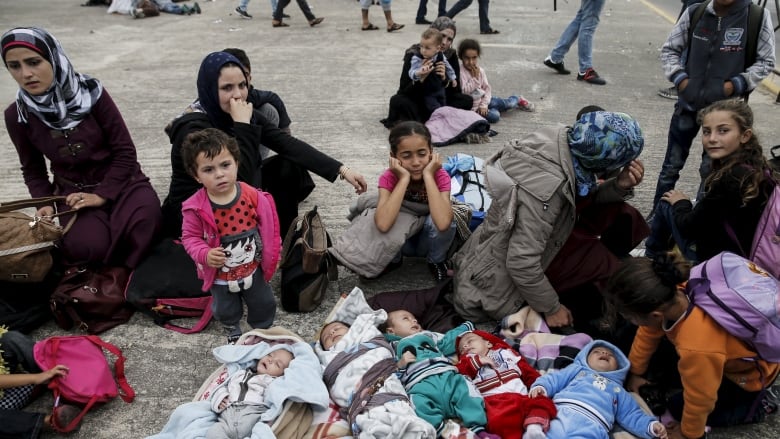Hamilton's refugee planners eager for details as arrival approaches
Preparations ongoing, but having an actual number would be a big help

The group coordinating the local Syrian refugee effort is still in the dark about the exact number of people who will be seeking refuge in the city, even though they will start to arrive next month.
Wesley Urban Ministries is still well into the planning and preparation stages of the process, says Executive Director Daljit Garry. But not knowing how many people to plan for makes the process more difficult.
"We don't have exact numbers, so we don't know what we need for things like housing," Garry said. "I think that's the missing piece – where exactly people will be destined.
"We need details."
- Syrian refugees in Hamilton: More time to prepare but few details known
- Hamilton is ready for Syrian refugees, McMeekin tells Wynn
Those details, she says, will hopefully come in meetings over the weekend. That's not a moment too soon – the federal government announced yesterday that it will resettle 10,000 refugees by the end of December, and another 15,000 in February.
The initial plan was to bring in 25,000 people by the end of the year.
Majority of first wave privately sponsored
Of those 10,000 people coming next month, it's expected about 8,000 will be privately sponsored, Garry says. The vast majority coming in 2016 will likely be government sponsored, she added.
Garry says she's pleased with the progress being made both by her organization and by partners like the city, the school board and the healthcare system.
About $100,000 has been raised locally through Wesley Urban Ministries to aid with private sponsorship. Garry could not say how many private sponsorships have been set up in the city.
Preliminary estimates are that Hamilton will see 200 to 300 families, said Mayor Fred Eisenberger, which would mean about 1,000 people.
"I think handling that number is absolutely doable," Garry said.
There will be lots of moving parts for anyone seeking refuge in Hamilton, especially within the first few days of their arrival.
Once they're picked up from the airport, they are taken to a local reception house where they're served a meal and allowed to get comfortable.
Working to address schooling, language barriers
After staying there overnight, the real work begins: they are connected with financial supports and start the setup process for bank accounts, OHIP, social insurance, and figure out housing.
They'll also start working with organizations on "life skills," Garry says. In many cases, that will mean breaking down language barriers. "They understand they will need to invest in supports for language," she said.
The first step will be "assessing what the needs are," – but that's difficult to do without concrete numbers and knowing what people's language skills are.
"But many of these people are highly educated – for individuals with language skills, integration can come quite quickly."
Then there are all the children who will needed to be integrated into the school system, something Garry calls "critically important."
"Some of these kids have been out of school for years in some cases," she said. Wesley Urban Ministries has been working with the school board to make sure everyone is ready to help out with that, she said.
Anyone interested in becoming a sponsor for a refugee or family can attend an information session on Thursday at Wesley Urban Ministries from 5:30 p.m. to 7 p.m. Space is limited, but you can register here.